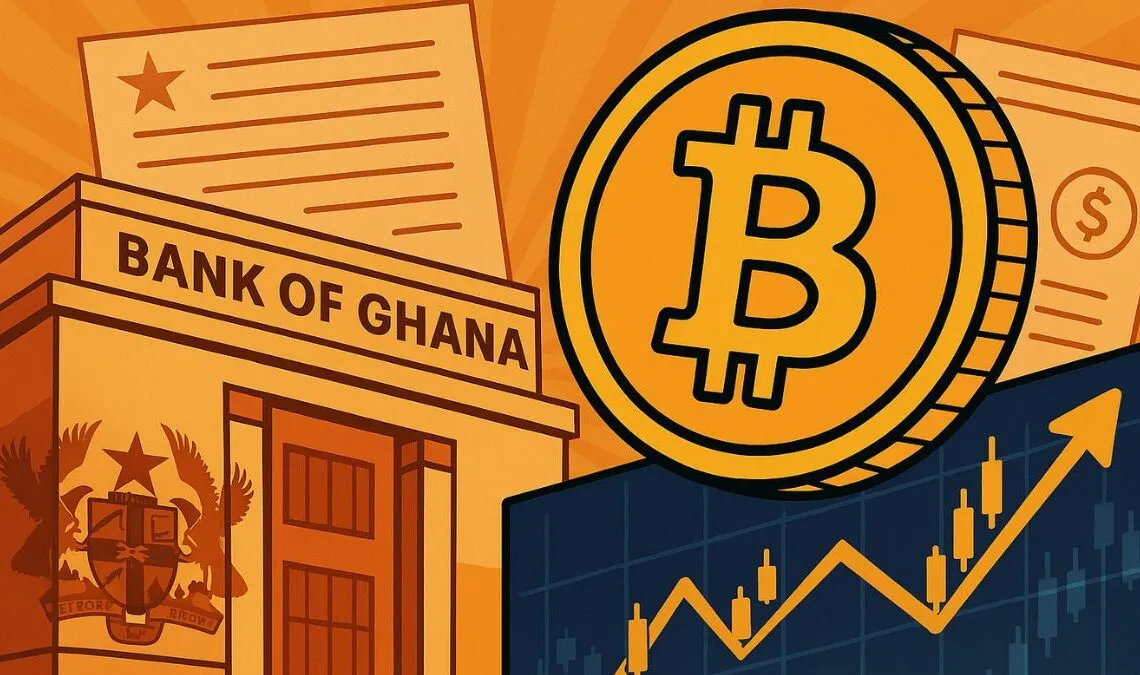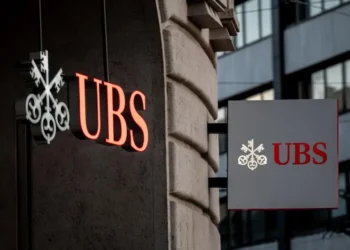Ghana’s central bank has officially announced that it will introduce comprehensive cryptocurrency regulations by September 2025, marking a major step forward for crypto adoption in Africa.
The move, revealed this week by Dr. Ernest Addison, Governor of the Bank of Ghana, highlights the growing recognition of Bitcoin and digital assets as part of the financial landscape — and sets Ghana on track to become a regional leader in regulated crypto markets.
Bank of Ghana’s Statement: Clear Timeline for Crypto Rules
Speaking at the 2025 Ghana Economic Forum in Accra, Dr. Addison confirmed that the Bank of Ghana (BoG) is finalizing new guidelines for digital assets, including Bitcoin and stablecoins.
“We expect to have a full regulatory framework in place by September this year, covering licensing, operations, and supervision of crypto activities,” Addison stated, as reported by Vanguard Nigeria.
The central bank’s approach aims to balance innovation with financial stability. Officials emphasized that regulation will focus on consumer protection, anti-money laundering (AML) compliance, and clear operational guidelines for crypto businesses operating in the country.
This is not a sudden pivot. Ghana has been studying crypto markets for years, and the decision to formally regulate rather than ban digital assets places it in contrast with some neighboring countries still grappling with policy uncertainty.
Why This Matters: Bitcoin’s Role in Ghana’s Future
While the regulatory framework will cover a broad range of digital assets, Bitcoin remains central to Ghana’s crypto story.

According to Africa Business Insider, interest in Bitcoin has surged in Ghana over the past two years, driven by factors like:
- Currency depreciation concerns
- Youth-led digital entrepreneurship
- Mobile banking integration with crypto wallets
By creating a clear legal environment, the Bank of Ghana is signaling that Bitcoin and other cryptocurrencies can coexist with — and even strengthen — the country’s broader financial system.
Crypto entrepreneurs and payment platforms operating in Ghana welcomed the announcement, noting that regulatory clarity could unlock new investment, remittance, and savings opportunities for millions of unbanked citizens.
What Are the Key Details of Ghana’s Crypto Plan?
Here’s what we know so far based on the official statements and media reports:
- Licensing Regime: Exchanges, custodians, and crypto service providers will be required to obtain licenses from the Bank of Ghana.
- Compliance Standards: Strict KYC (Know Your Customer) and AML protocols will be enforced.
- Consumer Protections: Regulations will aim to ensure transparency, security, and fair practices across crypto platforms.
- Innovation Encouragement: Officials suggested that regulated digital asset innovation — especially in remittances and financial inclusion — will be supported.
“The goal is not to stifle innovation, but to create an environment where responsible crypto innovation can thrive,” Dr. Addison said during the forum.
This balanced approach could make Ghana one of the most attractive crypto hubs in West Africa by the end of 2025.
Final Thoughts — Ghana Bets on Crypto the Smart Way
Ghana’s decision to regulate — rather than resist — crypto is a significant moment for Bitcoin adoption globally.
It reflects a growing awareness among emerging economies that digital assets can be tools for growth, not just threats to stability. By setting a clear timeline and emphasizing innovation alongside compliance, Ghana is positioning itself ahead of many larger markets still caught in regulatory debates.
As September 2025 approaches, all eyes will be on Accra to see how the final framework unfolds — and how Bitcoin’s role in the country evolves from grassroots adoption to mainstream financial integration.










